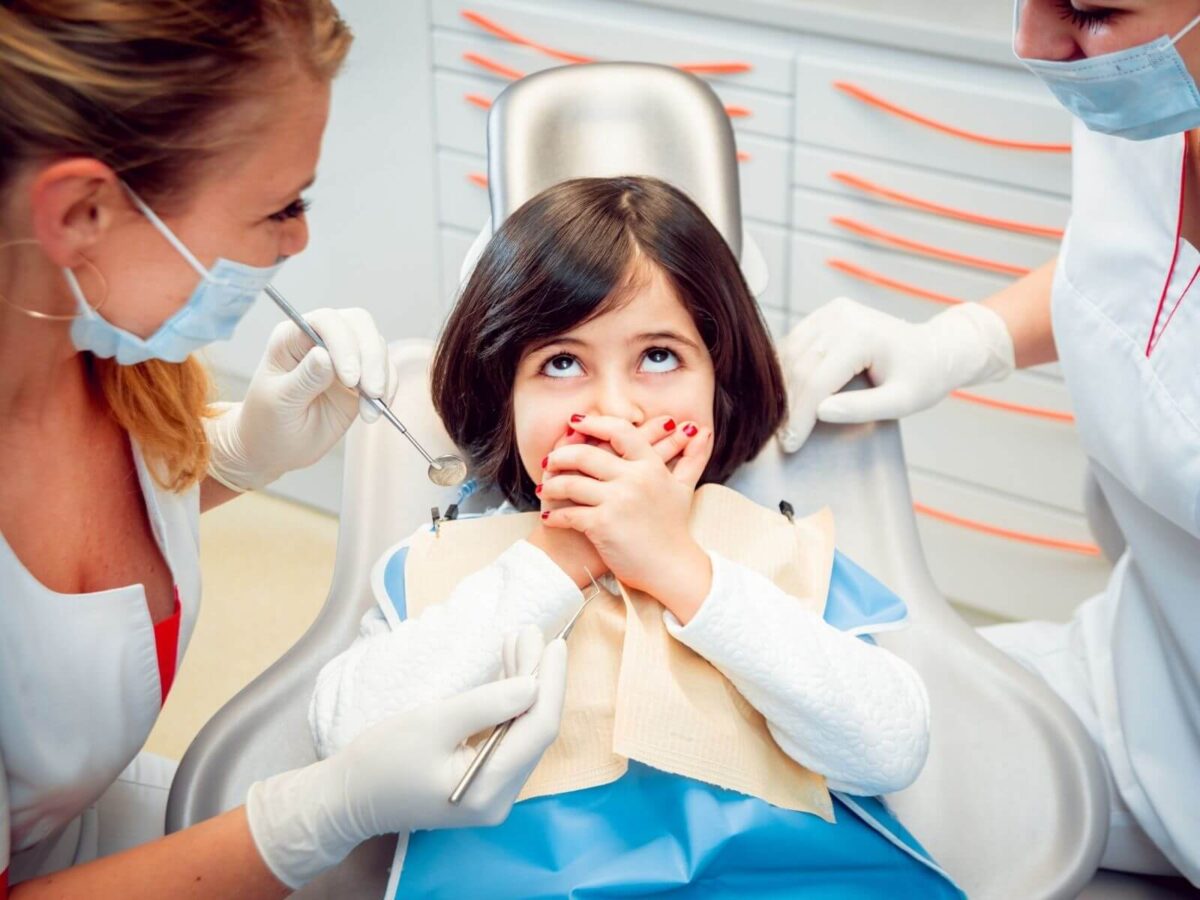River Walk Dental Orthodontics
Blog
Dental hygiene tips for healthy teeth & gums

Effective Strategies To Prevent Common Pediatric Dental Issues
A child’s smile is a treasure, a combination of happiness and innocence that melts our hearts. Behind every cute smile, there is a tale of small teeth and developing emotions. Children’s dental health goes beyond only teeth and gums.
It also involves helping them preserve the core of their contagious laughter and so promote their well-being. Independent studies show that one in every five youngsters between the ages of five and eleven years has untreated cavities.
Therefore, pediatric dental issues prevention plays a key role here. The whole well-being of children depends critically on their oral condition. Long-term health problems, pain, and discomfort can all result from poor oral hygiene.
Ensuring your child’s oral health depends on you. A parent must know the prevalent dental problems affecting children and how to prevent them. We have covered some typical dental issues that children face in this article, together with some insightful child oral health tips.
Most Common Dental Issues in Children
- Cavities are a form of tooth decay. Untreated cavities can cause tooth loss, infections, and pain.
- Periodontal disease developed from gingivitis can cause tooth loss and other health issues. Ignoring cavities shows the need for early detection of them in order to prevent more damage.
- A child’s bite, speech, and dental health can all suffer from misaligned teeth. It could complicate oral hygiene and raise gum disease and cavity risk. For malocclusion and associated conditions, children could gain from orthodontic treatment.
- Long-term thumb-sucking can produce an open bite, misalignment, and roof-of-mouth alterations. These practices may cause orthodontic issues after infancy. Preschoolers who still thumb-suck should be watched closely to avoid long-term effects.
- Acidic foods and beverages can erode enamel, therefore compromising dental sensitivity and causing tooth decay. Ignored erosion can lead to tooth weakening and cavities. Of teenagers, almost thirty percent suffer from tooth erosion.
- From sports injuries or mishaps, dental trauma can cause chipped or knocked-out teeth. Saving the tooth and stopping long-term consequences call for a quick response.
- Early tooth loss can affect the permanent dental alignment. This disturbance can thus call for later-in-life orthodontics.
- During swallowing, tongue movement against the front teeth can cause misalignment and orthodontic problems. Ignored early on, it could cause speech problems.
- Infants and toddlers can be restless and uncomfortable during teething. Consistent pain may influence sleeping and eating. Every baby requires comfort and a teething aid.
- Dental anxiety can lead to avoidance of dental treatment, therefore aggravating untreated conditions. Long-term consequences could be poor oral health and advanced dental problems. Dental anxiety must be addressed for mental health.
Suggestions for Pediatric Dental Issues Prevention
Include the following useful advice and pediatric dental issues prevention practices in children’s oral care regimen.
Start Early
Start dental hygiene before the first tooth surfaces. To remove bacteria and promote a healthy dental environment, gently clean your baby’s gums with a fresh, damp towel following every meal.
Prepare a Schedule
Establish a schedule whereby your child’s teeth are brushed at least twice daily. Select a toothbrush suitable for your child’s age from Soft Brights. For children under three, use a smear of fluoride toothpaste; for those three to six, use a pea-sized amount.
Supervise Brushing
Usually, at around seven or eight years old, supervise your child’s brushing until they can do it efficiently on their own. Make sure they reach all surfaces of their teeth and spend at least two minutes brushing.
Teach Method
Show them correct brushing practices. Emphasize soft circular strokes and cleaning all parts of the mouth, including the tongue and gums. When your child’s teeth start to touch, include flossing in their daily dental regimen.
Instruct them in the correct method and inspire them to include it often in their dental hygiene practices. Flossing avoids problems between teeth and helps to preserve good gums.
Eating Habits
Cut back on sweet drinks and snacks. Choose better substitutes and conserve sugary treats for big occasions. Promote a well-balanced dinner loaded with plenty of dairy products, fruits, and vegetables. These nutrient-dense foods promote gum condition.
They also provide essential nutrients required to keep strong teeth, thus helping to maintain general oral health. Water clears food particles from the mouth and helps neutralize acids there. Urge your youngster to sip water, particularly following meals heavy in sugar or acid.
Dental Visits
Plan frequent dental visits to San Antonio Pediatric Dentist TX beginning about the age of one or when the first tooth erupts. Early detection of possible problems and preservation of ideal oral health with professional cleaning depend on regular dental check-ups.
Fluorine Treatment
See your dentist about fluoride treatments, a preventive procedure aimed to strengthen enamel and stop cavities. Your child’s need will allow your dentist to provide suitable fluoride treatments or products.
Dental Sealants
Considering molars, consider dental sealants since they create a protective barrier and reduce the cavity risk by excluding food particles and bacteria from their path.
Set Example
Set good oral hygiene standards by illustration. Show good dental care. Therefore, oral hygiene becomes a good and shared family hobby. Children who see these behaviors often in the household will probably pick them up. Share with your youngster the need for gum health.
Final Thoughts
Maintaining good teeth for your child calls for both knowledge and careful attention to detail. Acting preventatively and knowing prevalent dental problems influencing youngsters will assist in guaranteeing a lifetime of good oral health.
Preventing these common dental issues and maintaining your child’s healthy smile depends totally on regular dentist visits, good oral hygiene, and a balanced diet. When choosing a pediatric dentist, it’s important to follow expert prevention tips to keep your kids smiling bright and healthy.
